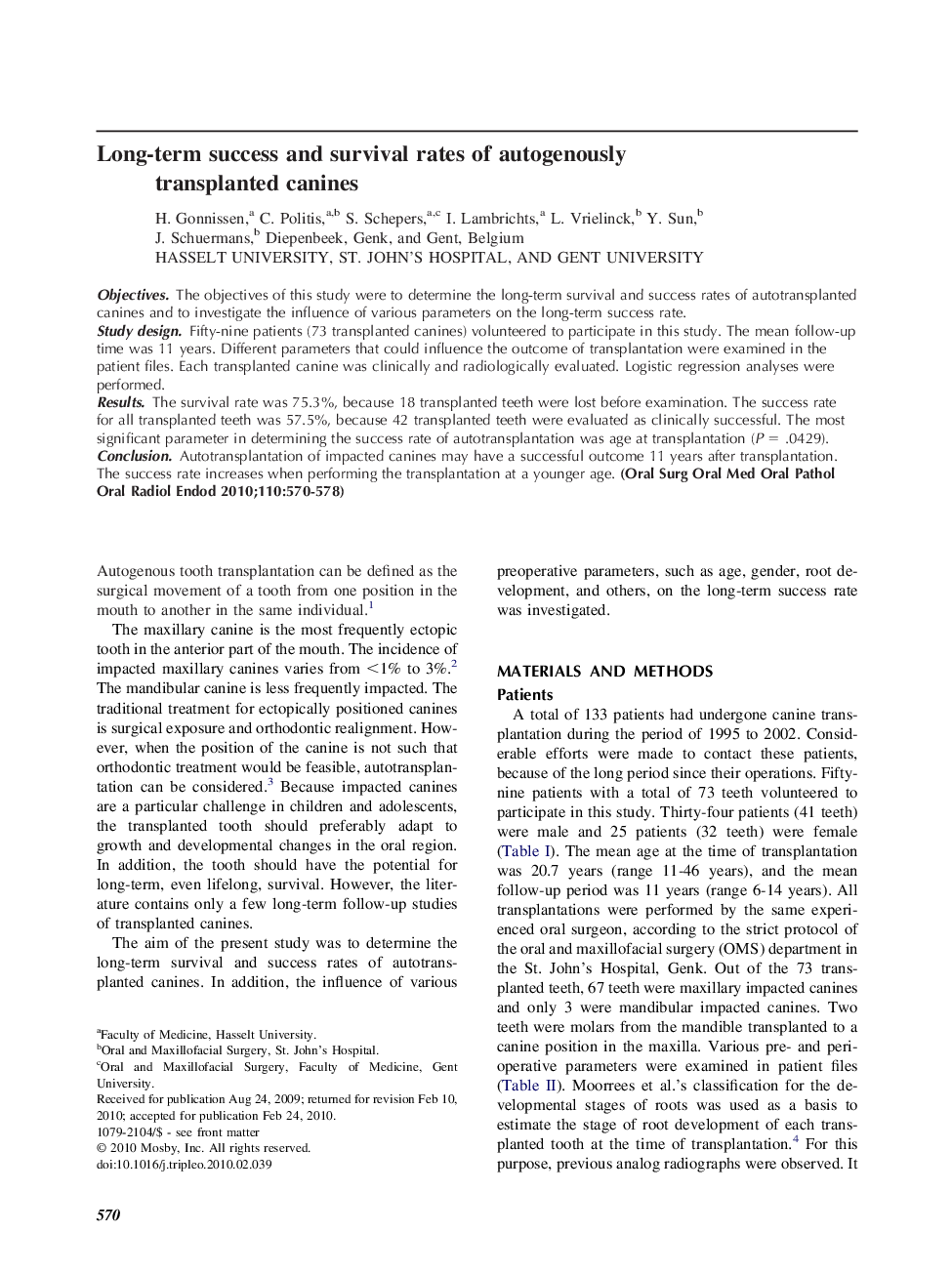| Article ID | Journal | Published Year | Pages | File Type |
|---|---|---|---|---|
| 3167449 | Oral Surgery, Oral Medicine, Oral Pathology, Oral Radiology, and Endodontology | 2010 | 9 Pages |
ObjectivesThe objectives of this study were to determine the long-term survival and success rates of autotransplanted canines and to investigate the influence of various parameters on the long-term success rate.Study designFifty-nine patients (73 transplanted canines) volunteered to participate in this study. The mean follow-up time was 11 years. Different parameters that could influence the outcome of transplantation were examined in the patient files. Each transplanted canine was clinically and radiologically evaluated. Logistic regression analyses were performed.ResultsThe survival rate was 75.3%, because 18 transplanted teeth were lost before examination. The success rate for all transplanted teeth was 57.5%, because 42 transplanted teeth were evaluated as clinically successful. The most significant parameter in determining the success rate of autotransplantation was age at transplantation (P = .0429).ConclusionAutotransplantation of impacted canines may have a successful outcome 11 years after transplantation. The success rate increases when performing the transplantation at a younger age.
